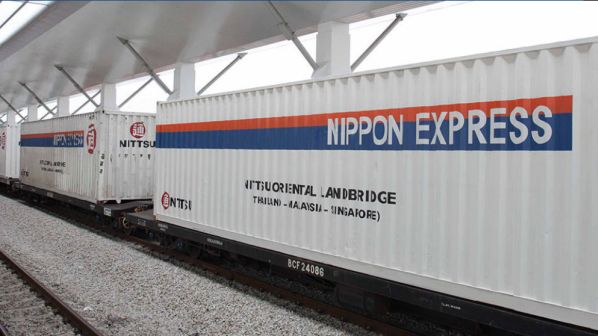The company will raise the number of round trips from the current average of around 2500 return journeys per year to 5000 journeys, following a fall in demand for air freight due to the onset of the coronavirus pandemic, which substantially increased costs for the service.
Previously, air freight cost four times as much as rail for a five-tonne shipment, while offering substantially shorter shipping times. However, since the implementation of new border restrictions, this price difference has increased to 10 times more than rail.
It is hoped that the shift to rail will allow Nippon Express to take advantage of the growing interest in rail as an alternative to air and sea freight options.
Rail currently accounts for only 10% of Nippon Express’ total Eurasian freight shipping, with a total of 14,000 tonnes transported between Asia and Europe in 2019.
Nippon Express currently operates 23 rail routes between China and Europe, in collaboration with local operators. The company’s key routes, which it operates under the Eurasia Train Direct brand, run between Xian, China and Duisburg, Germany; Shanghai, China and Hamburg, Germany; and Qingdao, China and Budapest, Hungary, and have an average transit time of 11-16 days each way.
The company is also exploring the opportunity to include new routes connecting Xi’an and Scandinavia, according to a report by the Nikkei.
The news follows an announcement earlier this month by Russian Railways (RZD) that intermodal rail freight flows on its China - Europe routes have already surpassed total volumes for 2019 in the first nine months of this year.

